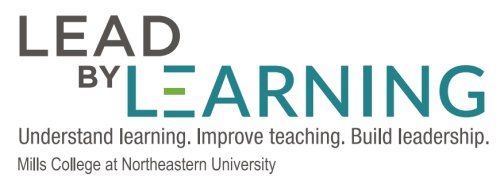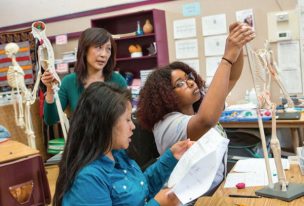Academic Discussion: Seven Powerful Takeaways
In response to the Common Core’s emphasis on conversations that promote learning, many of our teacher scholars chose to focus their inquiries on academic discussion during the 2013-14 academic year. Through support from Mills Teacher Scholars staff, participants looked at classroom video data with colleagues to better understand both what powerful learning conversations sound like and to gain insight on how to facilitate successful academic discussions in their classroom.
Drawing on their learning, here are seven ideas to keep in mind as you plan for academic discussion in your classroom this fall:
- The social emotional foundations to support academic discussion take time and explicit focus to build. For students to be able to have authentic conversations that enhance content knowledge they must be building the fundamental social and emotional skills that support effective communication.
- Academic discussion is beyond simply sharing what you know. Many teachers discovered that their students could effectively report to a partner what they knew but creating an opportunity for interaction that enriches what students understand is different.
- Academic discussion requires significant work with content prior to discussion. Students can’t engage in content discussion without foundational understandings and personal connections/experiences. Over and over teachers discovered that their students didn’t have enough information to ask questions that would support a partner to build their content understanding.
- Listening is as important as speaking. What does the listener need to be doing during a discussion? Have students been taught these competencies? Do district tools emphasize the role of the listener? Elementary teachers found that providing possibilities for listener participation (eg. hand signals for agree/disagree or asking clarifying questions) helps listeners stay engaged and focused.
- Academic discussion is not always in “academic English.” Consistently expecting students to use formulaic sentence frames or maintain discussion in standard language can stifle sense making and authentic content engagement. Our amazing colleague Laura Alvarez gives a great talk on “the mode continuum,” a framework for shifting between the language of ideas and the language of reporting.
- Discussion worthy prompts should be relevant and, ideally, controversial. Too often we are asking students to talk about something in which they are not invested or engage with a prompt that does not lend itself to a discussion.
- Constant teacher direction of academic discussion can ultimately stifle independent conversation. Consider ways to step back and build students’ ability to facilitate their own discussions. This is your chance to listen closely to students and to better understand their emerging understandings and interests.
Thoughtful planning and facilitation of academic discussions in diverse classrooms is a challenging undertaking. What would you add to this list?


